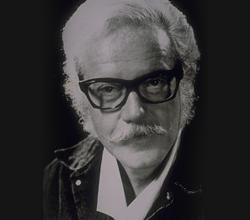This is mark Joseph “young” blog entry #235, on the subject of Versers Infiltrate.
With permission of Valdron Inc I have now completed publishing my first three novels, Verse Three, Chapter One: The First Multiverser Novel, Old Verses New, and For Better or Verse, in serialized form on the web (those links will take you to the table of contents for each book). Along with each book there was also a series of web log posts looking at the writing process, the decisions and choices that delivered the final product; those posts are indexed with the chapters in the tables of contents pages. Now as I am posting the fourth, Spy Verses, I am again offering a set of “behind the writings” insights. This “behind the writings” look may contain spoilers because it sometimes talks about what I was planning to do later in the book–although it sometimes raises ideas that were never pursued. You might want to read the referenced chapters before reading this look at them. Links below (the section headings) will take you to the specific individual chapters being discussed, and there are (or will soon be) links on those pages to bring you back hopefully to the same point here.
There is also a section of the site, Multiverser Novel Support Pages, in which I have begun to place materials related to the novels beginning with character papers for the major characters, hopefully giving them at different stages as they move through the books.
This is the third mark Joseph “young” web log post covering this book, covering chapters 43 through 63. These were the previous mark Joseph “young” web log posts covering this book:
-
#218: Versers Resume (which provided this kind of insight into the first twenty-one chapters);
- #226: Versers Adapt (covering chapters 22 through 42).
History of the series, including the reason it started, the origins of character names and details, and many of the ideas, are in those earlier posts, and won’t be repeated here.

Return to Top
Quick links to discussions in this page:
Chapter 43, Kondor 106
Chapter 44, Brown 117
Chapter 45, Slade 106
Chapter 46, Brown 118
Chapter 47, Kondor 107
Chapter 48, Brown 119
Chapter 49, Slade 107
Chapter 50, Brown 120
Chapter 51, Kondor 108
Chapter 52, Brown 121
Chapter 53, Kondor 109
Chapter 54, Brown 122
Chapter 55, Slade 108
Chapter 56, Brown 123
Chapter 57, Kondor 110
Chapter 58, Brown 124
Chapter 59, Slade 109
Chapter 60, Brown 125
Chapter 61, Kondor 111
Chapter 62, Brown 126
Chapter 63, Slade 110
Chapter 43, Kondor 106
I had decided at this point to turn the situation around, to put the trio among the whites and see where that took me.
Bob and Shella of course are protected by their SEP to enemies spell–they would not have thought of it thus, but everyone in this world is their enemy–and so they are not seen until they reveal themselves. The fog was convenient as an explanation, particularly for Joe, whose perspective this is.
The take charge attitude Bob displays is a technique for getting people to yield: he acts as if there is no question who is in charge here, and they are not certain they are in a position to object. Even the way he asks “who are you?” carries with it the implication that he is important and they are not.
I wanted European sounding names up front to contrast against the African names I had used among the blacks.
Chapter 44, Brown 117
Splitting the team is another encounter in the scenario, which sets up the next two. It’s always tricky trying to figure out how to split them, although it helps generally (in play) that it’s done with one player character and the rest of the team non-player characters, so if I can set up a credible reason for the split, the split works. Here I am able to make the split the decision of the main character.
Derek has used this springing stab attack before, but it was a risky move and I couldn’t allow it to appear to be a certain kill. This time he had to fail, and we had to have more tension in the fight because of it.
I realized at this point in the read-through edit that I had not mentioned the chain, and it had to be somewhere accessible, so I went back to Brown 110 and made a few tweaks to include his weapons.
Chapter 45, Slade 106
Slade’s uncertainty about what to request reflected my own about this scenario: I did not know where it was going. It was a good short-term cover story, but it opened more problems ahead. I was going to have to figure out what to do about them.
Chapter 46, Brown 118
Making the communications links very short range was a story decision at this moment: I did not want Derek to know what was happening to the others until he got there. It made sense, though, as short range communications would use less power, be less likely to be overheard, and be sufficient for most applications in a commando group.
One of the points made through the books and in the game is when you have more options you have more decisions. Derek here considers whether to become Morach and use the drugged arrows, although he rejects it as not better tactically.
Chapter 47, Kondor 107
The notion that both sides had dehumanized the other takes form here in a simple conversation. It probably is not changing the world, but it is illuminating it.
Joe’s speech is reminiscent of Shylock’s in The Merchant of Venice. In high school I had to write and perform an updated version of that particular Shakespearean play for an English class, and when the Jew says, “If you prick us, do we not bleed?” arguing for his own humanity, we have something of the same echoing here.
I was the eldest of four siblings, and at some point decided that whenever two people were sharing one object–a sandwich, perhaps–the fairest way to divide it was to have one person divide it into halves as evenly as he could, and the other pick which half he wanted. That’s not quite the same thing here, but as the threesome defer to each other, they each are seeking to accommodate the others as fairly as possible.
Chapter 48, Brown 119
I should apologize to our friend whose middle name is Kaseem, a very American Christian son of a Palestinian Islamic family, who goes by “K. C.” (his given name appears on some of his mail, and his first name is also rather Arabic, but few people know it). It seemed likely that in this situation an Arab terrorist in Britain would have adopted the same name.
I think that my notion of how forty or fifty terrorists with significant military equipment could get into a public high rise office building is probably adequate; I suspect it’s been done, at least in other works of fiction, although I don’t know for certain and hope I haven’t given ideas to any terrorists out there.
Chapter 49, Slade 107
The exposition of the problem and solution was probably unnecessary, as I hope the readership already understands it. It’s there for clarity, and to show that at least the characters understand it. It also set me up for Joe’s next move.
The referenced movie was entitled The Russians Are Coming! The Russians Are Coming!, and was generally a rather humorous film, although the climactic scene did have a Russian submariner climb the outside of a church bell tower to rescue an American boy who had slipped and was hanging precariously from some unsafe board.
Chapter 50, Brown 120
We had a problem with the rise in popularity of rap music and the corresponding rise in small portable audio players: friends of my sons would come to the house and blare what I considered obscene language. I informed them that if guest in my house talked like that I would ask him to stop or leave, and I couldn’t treat his music player any differently.
The lone individual was probably inspired to some degree by Hans Gruber in Die Hard, the villain pretending to be a separated office worker. Derek intuitively recognizes that a real terrified office worker probably would not have mentioned how many of them there were, and thus he must be trying to feed information to someone.
Derek’s memory is of the slasher summer camp scenario in his first book, Old Verses New. He gives all the relevant details.
The fifteen minute thing gave me a deadline without promising to detonate the bomb.
Chapter 51, Kondor 108
The discussions in the previous chapters revealed to me what had to happen here: I needed Joe to demonstrate that he was a genuinely compassionate human being, without either appearing that he was trying to do so or stepping out of his otherwise coldly rational and atheistic character. This was where I managed to find that solution.
The peeping sound of tree frogs, which for years I thought were crickets, is a normal sound in the woods during the warmer times of the year. That it is absent demonstrates that the ecology has been disrupted by the war.
The orange light is because Joe is still using the settings of the cybereye he used when they stepped into the fog. Thus his “red” sensors are seeing infrared and his “green” sensors are centered on green, and thus the combination of heat with visible light is interpreted by his brain as a combination of red and green, which the brain sees as orange or yellow.
I figured the medicine practiced here would be that of the Crimean and American Civil Wars–a lot of amputations, no anesthesia or antibiotic. It would be simple for any modern doctor to improve on the situation, particularly one with a medical bag containing a few modern instruments and medications intended for emergency field use.
The diagnosis is there because I thought it important that Joe establish his credibility through being able to tell what was wrong. If they’re going to believe he can fix it, they must first believe that he knows what he is saying.
Again the Shylock speech influences Joe’s answer about whether he is a demon.
Chapter 52, Brown 121
Derek raises an obvious solution: check a building directory, there is bound to be one. I am glad no one ever attempted to do this in play, because I don’t have one–the floors are created in response to the arrivals of the player character, to meet the needs of the encounters that are appearing next. Since I didn’t actually have to present a complete directory in order to say that Derek saw it, that wasn’t a problem here. In play, I’d just ask the player where he intended to go to find such a thing, and see what he wanted to do, making it as difficult as possible to get there, and interrupting him with the remaining encounters along the way.
Chapter 53, Kondor 109
When I wrote this chapter I was contemplating the possibility that the whites had some religious truth and the blacks were all atheists. I saw no way to pursue that, though, and ultimately abandoned it. I was beginning to recognize that I’d set myself a problem that my characters could not possibly solve, although actually the point was probably not that my characters were supposed to solve the problem but that they themselves were to learn from it.
Chapter 54, Brown 122
The “terrorist uses terrorist pretending to be hostage as a shield” scenario is also in the book. I had not yet begun shifting Derek’s chapters forward and had recognized that I had bitten off a huge story that wasn’t going to be able to be finished in a reasonable time running against the Kondor and Slade story, so I brushed over this encounter by telling it in retrospect. It enabled me to include all the encounters in the original scenario without bogging down into telling yet another directly.
The story here is a combination of two encounters which I always hoped someone would connect this way–one, the launching of a larger team to find them, the other hitting the booby-trapped door. When I wrote them I hoped someone would think of a way to walk the strike team into the booby-trap, and that’s what I did here.
As Jim’s doubts are resolved, we are reminded that there was no reason for him fully to trust Derek before this, and no indication that he actually did–Derek was the leader because that was the assignment, not because Jim recognized his ability. Of course, Jim has been reflecting Derek’s own self-doubt in this situation, but that has caused Derek to play the part of the person who knows what he is doing.
Chapter 55, Slade 108
Having Bob have to ask directions (twice) instead of following “his ears and his nose” underscores that he is very different from Joe. Joe works from solid evidence and rational thinking; Bob works from hunches and luck. Bob’s hunches and luck always get him through the trouble, but not through the simple tasks. Finding the mess tent isn’t a very risky situation–not much riding on it–so it was fun to have him struggle with it however briefly.
I think the best expression of the idea that men usually accepted excuses that began with the words “My wife” came from Ogden Nash, in a non-poetic poem about how criminals frequently arrested for vagrancy when “casing a joint” in preparation for a crime could explain their presence any place at any time with the words, “I’m waiting for my wife.” Bob has not had any experience to support that, but he recognizes that it’s true of people he has known.
I don’t remember where I got the name “Vargas”, but it seemed European, probably Spanish or Hispanic, to me, and it got me away from a monolithically British name set.
I now had a story I could run for a while, as Joe taught medicine to the white doctors and Bob pretended he was eager to leave but would wait a bit longer. It wouldn’t last forever, but it would hold for a while.
Chapter 56, Brown 123
I had said “photography studio” previously, but had forgotten that when I got to this chapter (I was writing very slowly, trying to find my story as I went). The idea that a nuclear bomb would be traceable by detecting radiation sent my mind in the direction of a place that had radiation shielding, and while I suppose a photography studio might have that in a darkroom, the readers would certainly know that a radiology practice would have to have such rooms somewhere. In reviewing I placed the radiology office next to a photography studio to resolve that.
Chapter 57, Kondor 110
The remembered words of the preacher were similar to some I had heard on some teaching tape decades before; I do not know who it was, although it was probably one of Bob Mumford’s free monthly teaching tape series (from a variety of speakers). The quote is far from exact, but it is basically the same concept. It was also probably race-reversed, but I think that gives it more impact here.
Chapter 58, Brown 124
The penultimate encounter says that the character finds the leader, and the bomb is not far. The guards on the door are in essence window dressing–I decided at this point that there would be guards on the door. It is sort of an extra encounter, but it is an obvious one, particularly given that the leader knows there is a strike force out there.
The lost kid gambit is an obvious one for a five-foot-tall male adolescent, and would probably set terrorists off balance. It is undoubtedly part of why children are used for bombers in the Middle East–Westerners, at least, hesitate to shoot them.
Chapter 59, Slade 109
I notice a couple things about Bob that came simply from writing his story, not from any particular consideration of the matter. One is that despite being bored in camp with nothing to do because Joe is teaching medicine to the white doctors, it never occurs to him that it might be either interesting or valuable to sit in on that instruction. The other is that although he is bored, he gets out and around and Shella does not, but he doesn’t really think much about her being bored alone in the tent.
When I realized that there were no people of mixed race, and that Bob might eventually notice that, I needed a word for it. “Arab” was reasonably good, because as a people they tend to be the median skin color, and their geographical position in the world suggests it might well be because of racial blending.
Some of this may have set my mind running toward the gather world. I don’t know whether I had yet realized I would be pushing that into the next book, but I began to think in terms of a magical Arabian setting for it.
It was probably a stretch suggesting that Bob knew “Montague” was the name of one of the families in Romeo and Juliet, but that’s why I didn’t let him know the other name (Capulet), as knowing the one more shows his ignorance than his knowledge.
Joe’s smattering of French is not sufficient to make it seem that he speaks French, only that he’s become educated enough to use snippets of foreign languages common among educated speakers of English.
The idea that a person can matter without doing anything is certainly not new, but it’s one that’s usually overlooked. One of our United States Presidents (Truman, perhaps?) was once asked about the fact that his father had been a lifelong failure, and he responded to the effect of asking how anyone could be considered a failure whose son became President of the United States. That has to reflect on the father somehow.
Chapter 60, Brown 125
The decision to stab someone with a dart of course goes contrary to expectations, but is perfectly logical in the situation and demonstrates that Derek is able to use objects in unexpected ways.
The simple plastique bomb was not really planned, but it had come to me that Pete had acquired the explosive earlier and really should use it at some point.
I was doing final preparations for publication and realized that Jim referred to what you see on “TV”. In all my British television viewing, I don’t think I’ve ever heard any character use that American identifier. I changed it to “the tele”, which I checked with Dictionary.com to be certain I had the right spelling.
I also realized at this point that Jim and Pete would use “lift” instead of “elevator”, and attempted to make those changes retroactively.
Chapter 61, Kondor 111
Joe is struggling with the fact that in what he must believe is coincidence he and Bob have exactly the kinds of skills needed to do the job of persuading each side that the other side is human in the sense they understand. It seems like divine intervention, but of course for him that can’t be accepted.
His thought of not telling Derek because it would “confuse the boy further” is in essence an idea that the evidence really supports the view that there is a God, so it has to be suppressed. It is an accusation raised against people of faith frequently, but it is subtly present here on the other side.
Chapter 62, Brown 126
I had to remember that although Derek is good at what he does, Jim is good at what he does, and that’s not what Derek usually does. Thus Jim does the assault here.
I’ve heard the “cautions” on British police dramas; they don’t repeat them as often as they do on American shows, I think (where we call them “warnings”), but I’ve heard them enough to recognize that they are different on a few points. That’s to be expected, since most of ours are based on United States Supreme Court rulings interpreting the Bill of Rights, and I expect theirs have followed based on their own laws and court rulings.
Chapter 63, Slade 110
Any time a story falls into a routine, it risks becoming boring. I needed to break the routine again, and of course there was in the background this problem that Robert Elvis Lord Slade of Slade Manor is a title from a different universe, with no correspondence here, and someone might eventually realize that. It gave me a new tension.
I recognized that it would be easy to give a non-descript name to the section of law in question here, and it would be very realistic. In America we speak of violations of Title IX, or Miranda Rights, or First Amendment issues, and we know what they are because the shorthand refers to familiar laws. Thus “section five of the war code” would be that kind of “everyone knows what this is” identifier that you would only know if you were from there.
That Shella would want to straighten up the tent before Joe arrived was exactly the sort of wife thing husbands don’t generally understand.
This has been the third behind the writings look at Spy Verses. If there is interest and continued support from readers we will continue to publish this novel and the behind the writings posts, and prepare the fifth novel to follow it.









